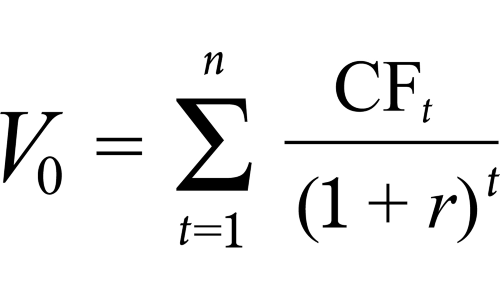What is intrinsic value?
Investors often look at a stock’s intrinsic value before deciding whether to buy it. See what it means and how intrinsic value is calculated.
Advertisement
Investors often look at a stock’s intrinsic value before deciding whether to buy it. See what it means and how intrinsic value is calculated.
Intrinsic value is an estimate of what a business is worth. Investors calculate intrinsic value to determine if a company’s stock price is undervalued or overvalued.
Intrinsic value is calculated in many ways. One common method is to calculate the sum of all expected future cash flows discounted to the present—this is called the discounted cash flow (DCF) model. If the company pays dividends, this is usually the present value of future dividends. For companies that don’t pay dividends, you can discount expected free cash flows, the money left after the company pays operating expenses and capital expenditures. Alternatively, you can discount earnings per share.
When using a DCF model of valuation, this is the formula to calculate the intrinsic value of a stock:

Calculating intrinsic value is best done with an online calculator or a spreadsheet, as you need to discount each expected cash flow individually and then add them up. Discount rates have a huge impact on your answer. Opinions vary on which rate to use. Some Canadian investors use the expected return on an index like the S&P 500, while others use the company’s weighted cost of capital.
Example: “To decide if a stock was undervalued, Edwin calculated the company’s intrinsic value using an online calculator. The stock was trading at $30, and the discounted cash flow valuation was $45, so Edwin decided to buy some shares.”
Share this article Share on Facebook Share on Twitter Share on Linkedin Share on Reddit Share on Email